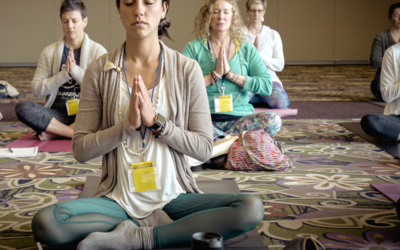By now, most of us know that exercise offers numerous health benefits. From maintaining an ideal weight, to reducing the risk of diabetes, heart disease, and osteoporosis, moving our body every day improves the length and quality of our lives.
But not all of us recognize just how important exercise is to our mental health.
Beyond Hormone Release
Most of us have had that rush after a hike or trip to the gym. We feel energetic and even happy after we exercise. Of course, we now know that when we exercise, our body releases “feel-good” hormones such as endorphins and enkephalins. These hormones instantly improve our mood and outlook on life.
But is that all exercise is good for? A quick fix? An instant mood pick-me-up via a hormonal rush? Or can exercise affect our brains and mental health on a fundamental level?
A study conducted by researchers from Duke University compared the antidepressant effects of aerobic exercise to the popular antidepressant medicine sertraline, as well as a placebo sugar pill. After four months the researcher found that those subjects who exercised regularly experienced the greatest antidepressant effect.
In other words, exercise was scientifically proven to be just as, if not more effective than prescription medications at relieving symptoms of depression.
How is this possible?
It turns out, regular exercise increases the volume of certain brain regions through better blood supply and an increase in neurotrophic factors and neurohormones that support neuron signaling, growth, and connections.
Also worth mentioning is the fact that exercise leads to the creation of new hippocampal neurons, the hippocampus being incredibly important for learning, memory creation, and emotion regulation.
So, How Much Exercise Do You Need?
Psychiatrist Madhukar Trivedi of UT Southwestern Medical Center has shown that three or more sessions per week of aerobic exercise or resistance training, for 45 to 60 minutes per session, can help treat even chronic depression. The key here is regularity, so it’s important to focus on the kind of exercise you do.
If you don’t like going to the gym, then find another activity. Hike, bike, swim, or dance. It really doesn’t matter. What matters is that you get your body moving for around an hour a few times per week and you do so consistently.
In order for all of us to be entirely healthy, that means physically as well as mentally healthy, it’s important to incorporate exercise into our everyday life.

A Meditation Exercise You Can Do with Your Child
As a busy parent of a young child, you may find it challenging to find the time or space to meditate. One solution is to bring the two together, and have your child meditate with you.Meditating with Young ChildrenFor children five and under, it will be difficult for...
Are They an Online Pest, or an Online Stalker? Knowing When to Get Help
Online stalking and harassment is becoming more common. According to the Pew Research Center’s 2017 Online Harassment survey, 41% of Americans have been personally subjected to harassing behavior online, and an even larger number (66%) has witnessed these behaviors...
5 Benefits of a Weekly Game Night for Your Mental Health
Our daily lives can get so busy. Obligations to work and family, as well as taking time to care for ourselves, can often make us forget to have a little fun. If the hustle and bustle of modern life has caused you to neglect your playful side, a weekly game night may...
Quick! Get Your "Top Tips For Getting the Most Out of Counseling" Cheatsheet!
Like some of what you've seen and want to see more? Sign up for our Mailing List for a free cheat sheet on making the most out of counseling. Our list members also gain access to exclusive specials and announcements, as well as the latest from our Counseling Blog!





